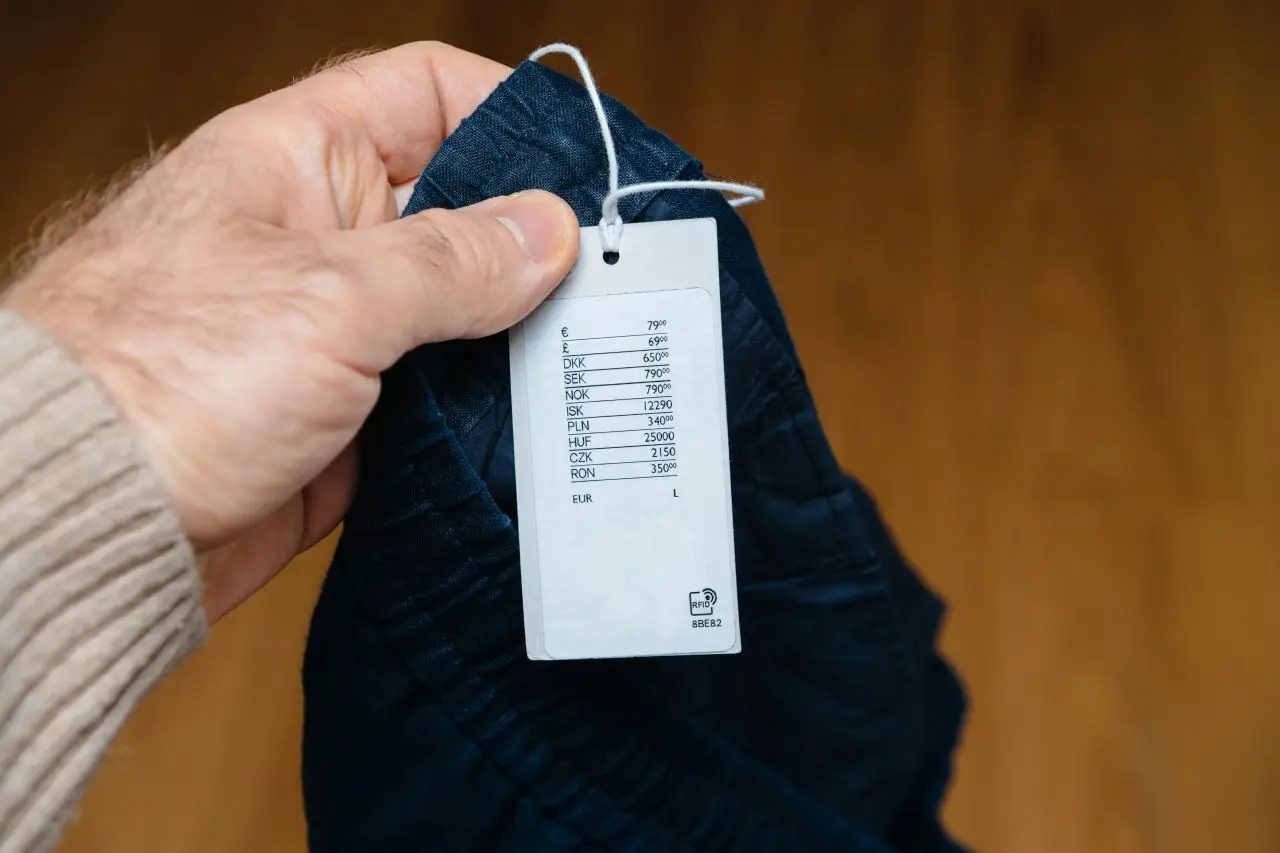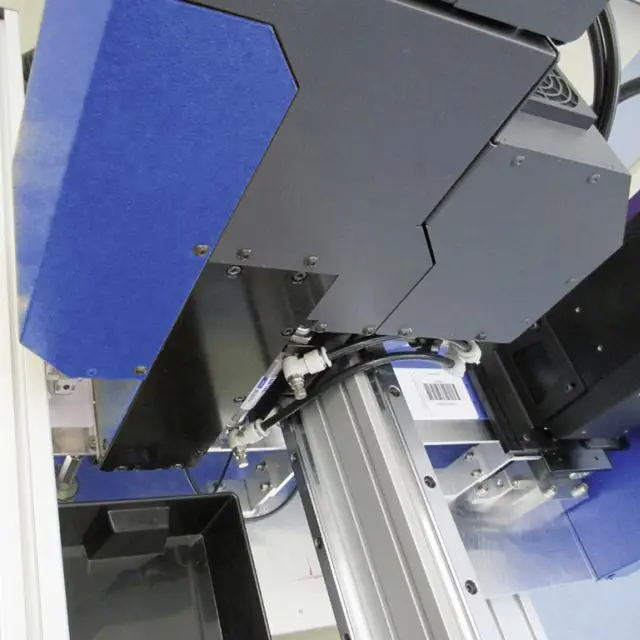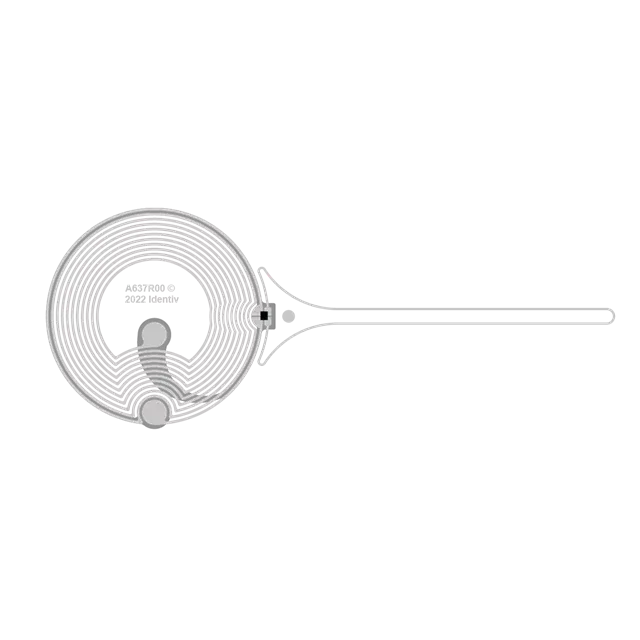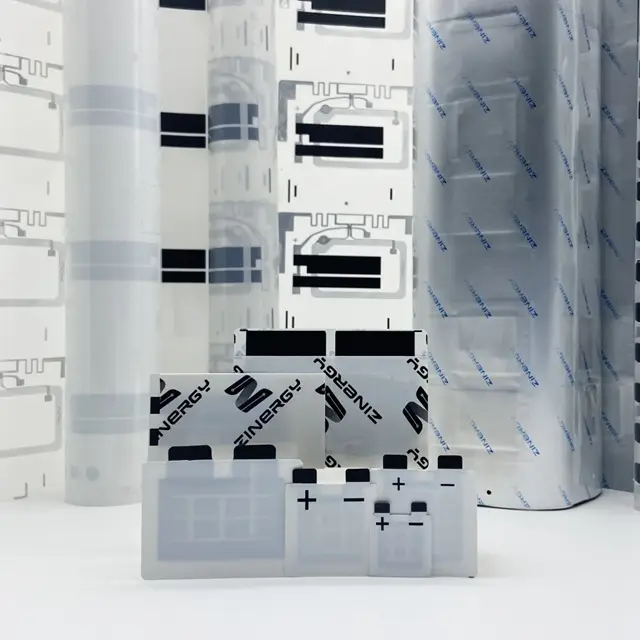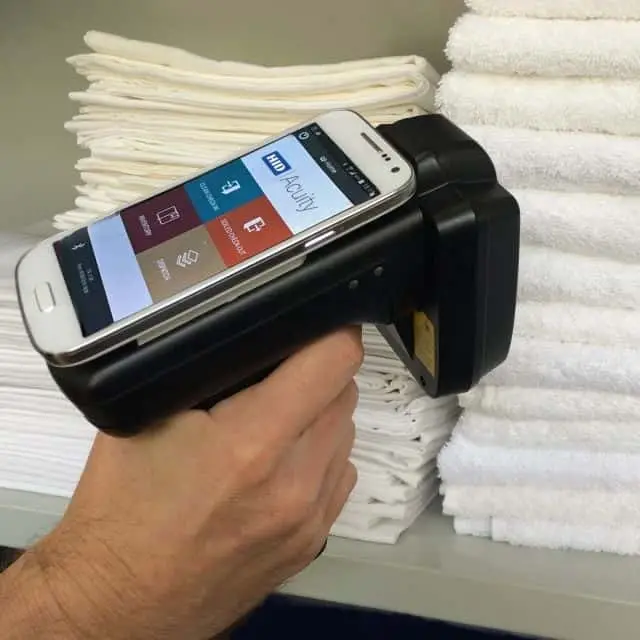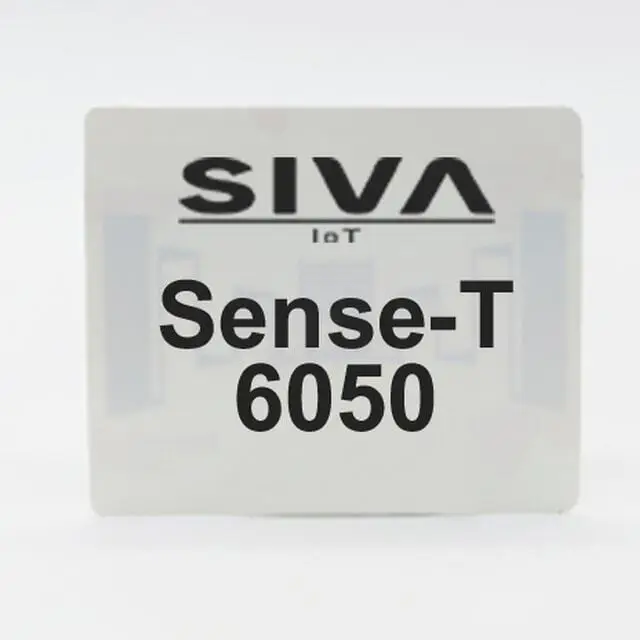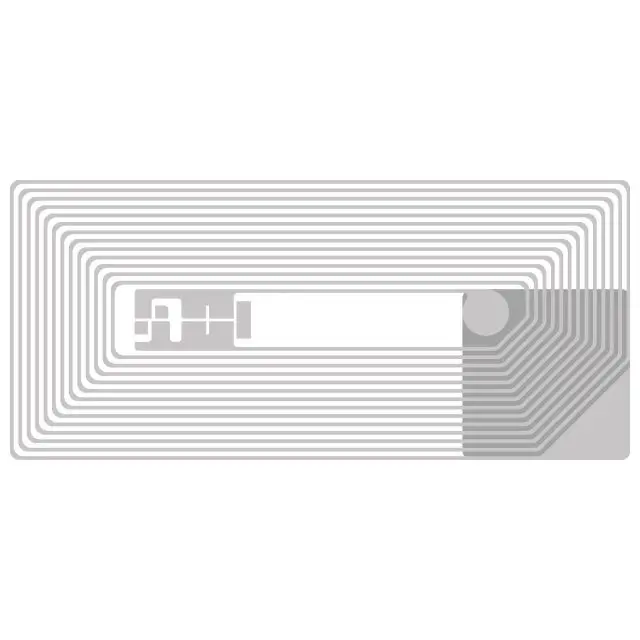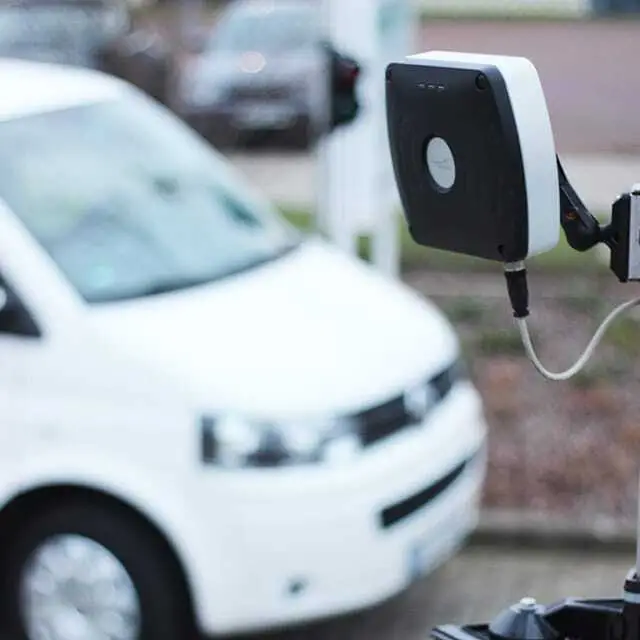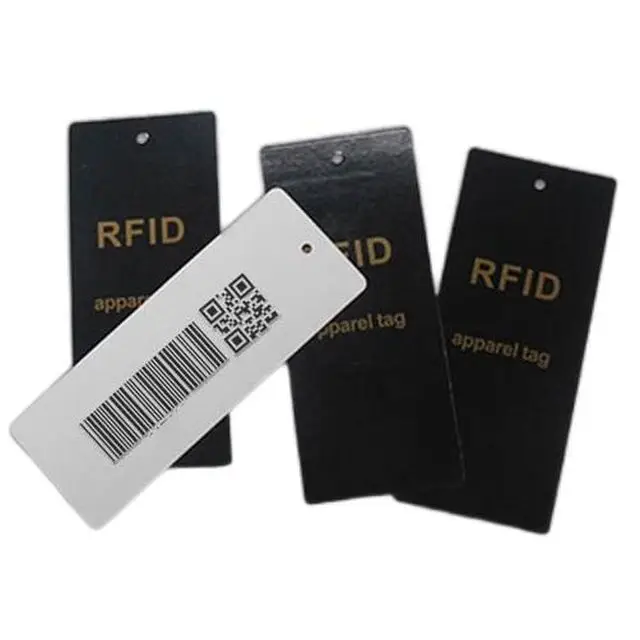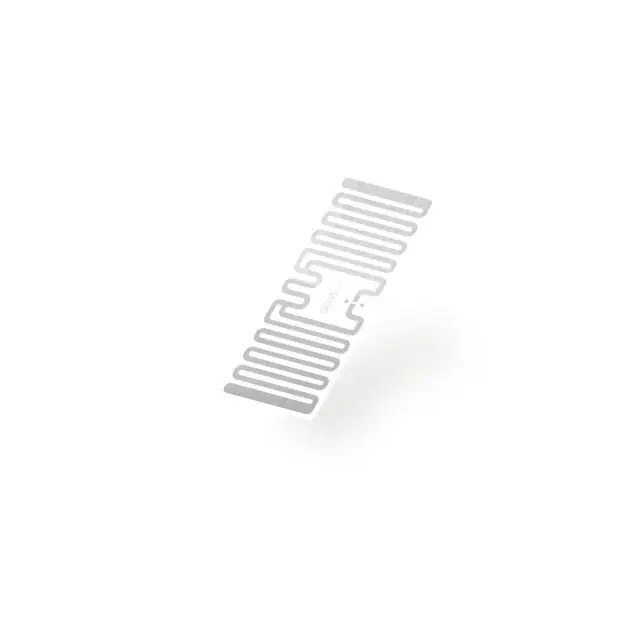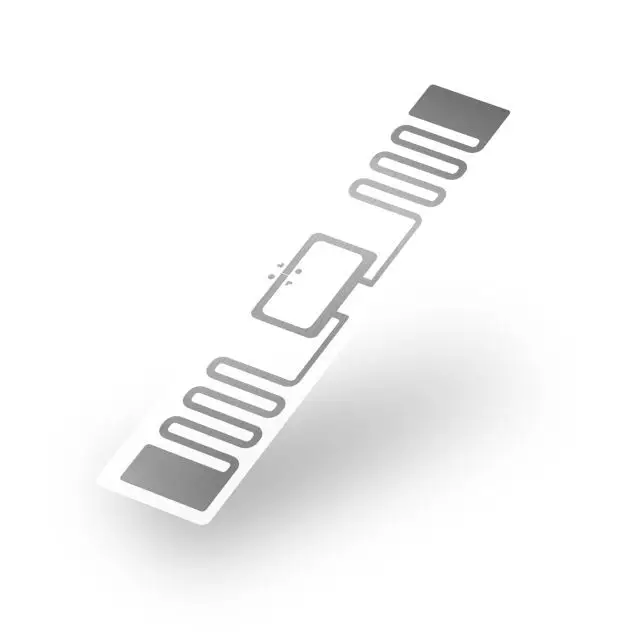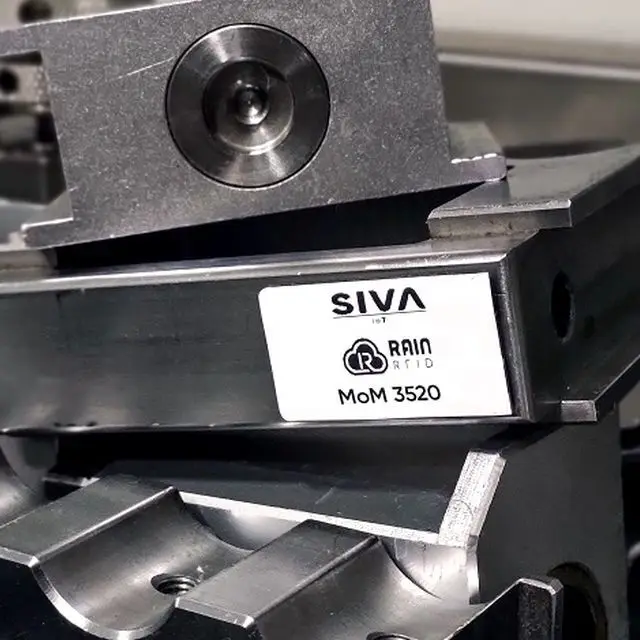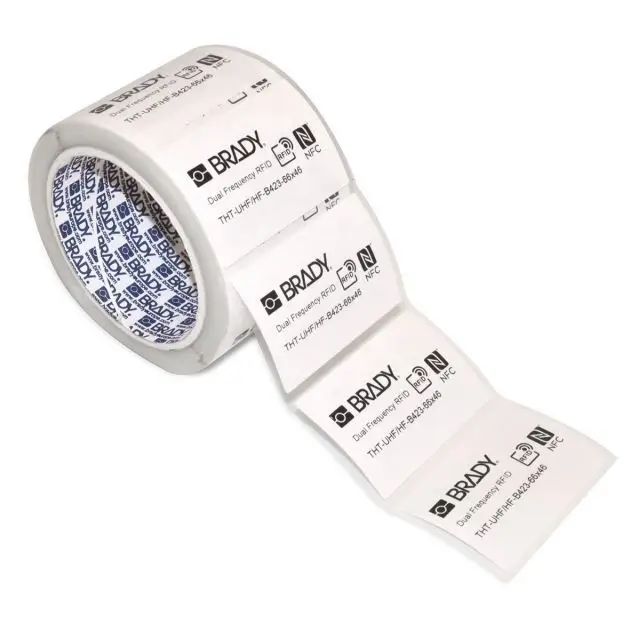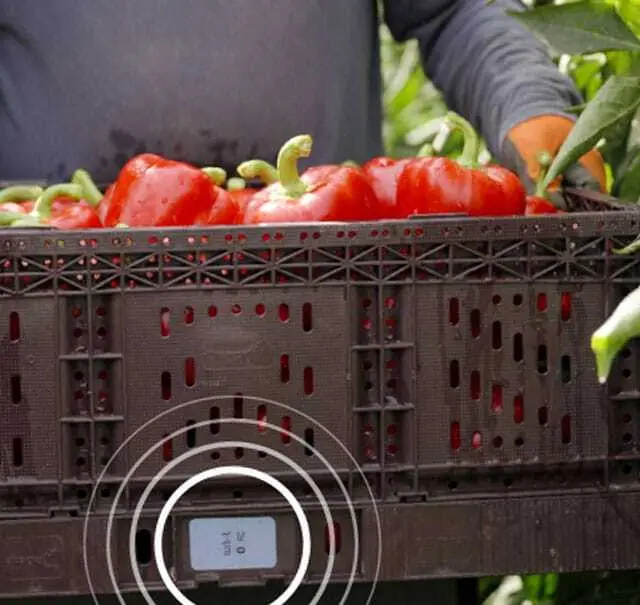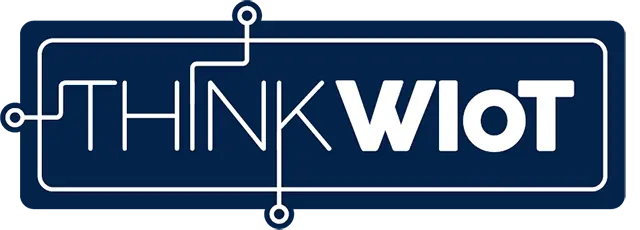What are RFID Labels?
An RFID label, also known as an RFID smart label, is a commonly used type of RFID tag. RFID labels are thin, flexible, and typically adhesive, making them ideal for flat surfaces on packages or products. They are best suited for environments where items need to be labeled with additional visual information and where the label can be easily applied and read.
These labels often come in the form of RFID stickers, for example. While RFID tags come in many form factors and can be embedded in assets or worn by people, RFID labels are restricted in form and are typically not worn or embedded.
Smart labels are used for identification and tracking applications. They are usually made from paper or plastic. RFID labels can both be manufactured by specialized RFID label manufacturers or printed. An RFID label printer or RFID labeling system is used to print these labels.
RFID labels and NFC labels have the same components as RFID and NFC tags, operate in the same frequencies, and also function the same way. For more information visit the RFID Tag product hub.
RFID Label Products
Applications That Use RFID Labels
RFID labels are used in many industries.
As part of digitalization in retail, RFID labels are extensively used for inventory control and management, and for asset tracking. They are attached on various products, including cosmetic bottles, clothing and footwear tags, books, and other goods. They can also enhance customer experience by enabling quicker checkouts and providing detailed product information through smart shelves.
In food retail, RFID labels enable the track and traceability of products from farm to table. They help ensure food safety and quality by monitoring storage conditions, such as temperature and humidity, throughout the supply chain. These labels also assist in reducing food waste by providing real-time data on expiration dates.
RFID labels are also used to track medical equipment, manage pharmaceutical inventories, and ensure the accurate dispensing of medication. Storage conditions and expiration dates of medical supplies and pharmaceuticals can be monitored with RFID labels. This is all part of digitalization in healthcare.
RFID labels play an important role in supply chain management and logistics by providing real-time visibility of goods as they move through the supply chain. All packages can be equipped with an RFID label. This visibility helps in tracking shipments, managing inventory levels, and ensuring timely delivery of products. Many warehouses and distribution centers have RFID printers that print the RFID labels required for the automation of receiving and shipping processes. This is what digitalization in logistics looks like.
As part of digitalization in industry, manufacturers use RFID labels to improve production efficiency and quality control. These labels can track parts, equipment, and components throughout the production process, ensuring that the correct parts are used and assembled in the right order.

